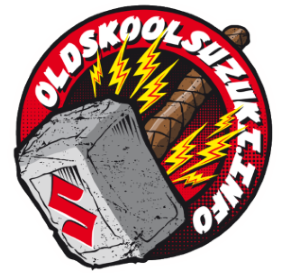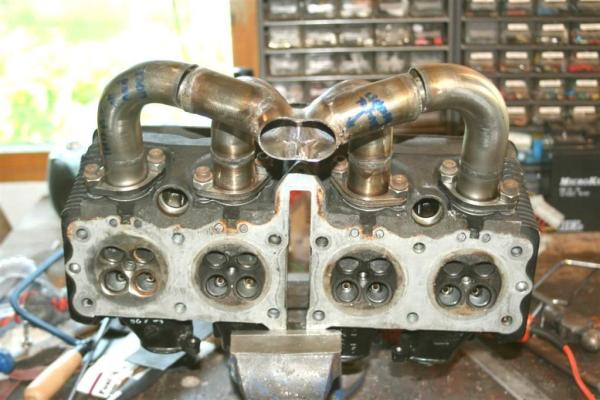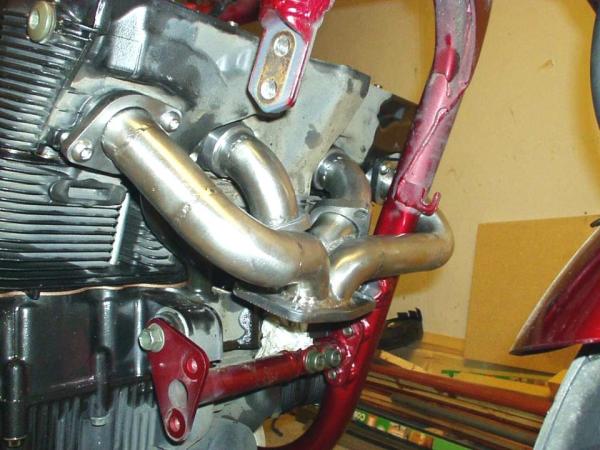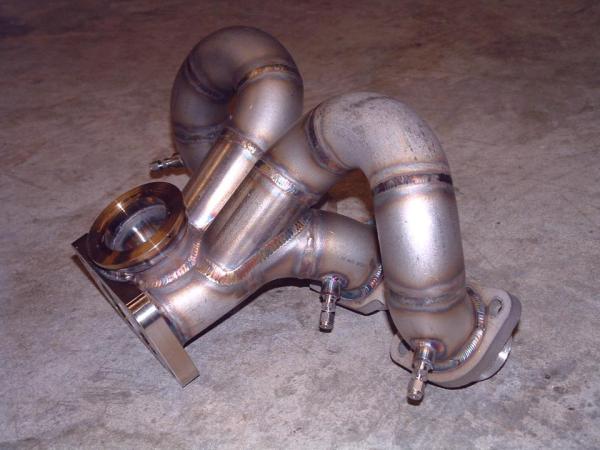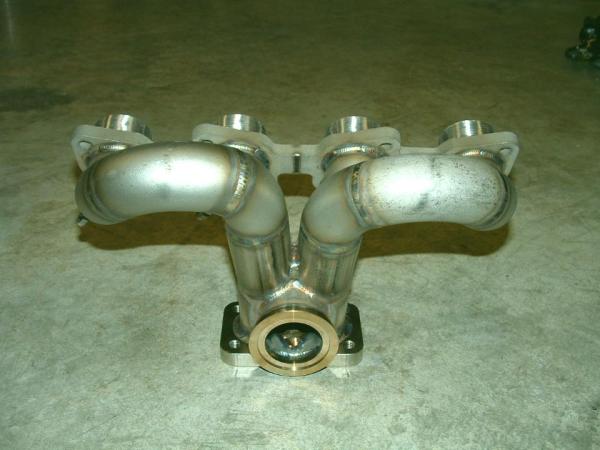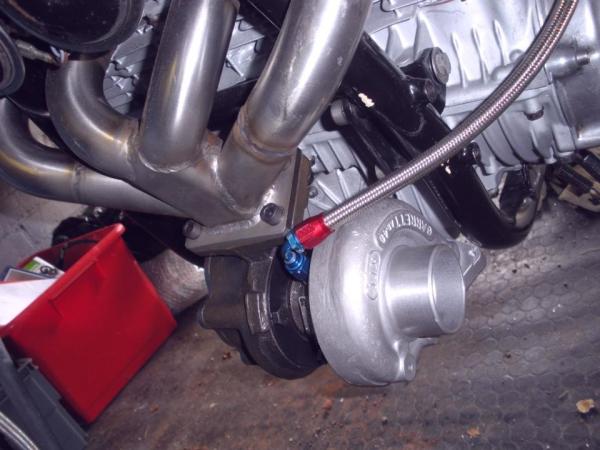-
Posts
5,755 -
Joined
-
Last visited
Content Type
Profiles
Forums
Events
Everything posted by Gixer1460
-
Point to mention - If the JDM loom doesn't have relays for the lamps, it would be sensible to assume the bulbs will be low wattage 35/35w types . . . . and in that diagram above, white would connect to white/red and yellow would connect to red/white (or is it red/yellow?) Switch should be capable of handling 2x 35w lamps at a time. Seems a bit foolhardy to wire relay feeds without a fuse, and in-line with alternator output so could get 14.5+v !
-
Its a 24 yr old bike so some problems are to be expected! What is the mileage and is it verified? How much do you trust the seller not to screw you over? Has it got or do you know of any service history? A through service with a 'new to you' bike is never a bad idea, so at least you know, it 'should be' running right! P1 - is oil level correct and is oil viscosity correct? Not unknown to over fill an engine with thicker oil to cover up a mechanically noisy one or noisy gearbox / clutch! Thicker oil won't help easy starting. Starter motor could be getting lazy / worn brushes - fairly easy work to clean or check. P2 - Idle rpm? Is it around 11-1200 rpm? Too low and the gear engagement lurch is magnified. Are carbs working correctly - idle stalls could be symptomatic! P3 - Clutch issues are 'usually' non std. fibre plates, incorrect oil (usually a fully synthetic but not always) warped steel plates, notchy hub / basket splines, incorrect adjustment through ignorance or to cover up a fault.
-

1996 SB6 No Spark
Gixer1460 replied to ArcanumOne's topic in Water Cooled, V-Twins, Singles and 2-strokes
Don't use plugs, not designed for the engine! Just because they fit, doesn't mean they will work correctly! Iridium plugs are designed for and suited to, fuel injected lean burn engines. In a carb'd engine they never run lean enough to burn off contaminates and fail too easily. Their use in turbo'd applications is moody also - due to the heat and cylinder pressures the Iridium tip can glow and lead to pre-ignition and detonation with all the good stuff that usually produces -
Who said a Prostock bike would be cheap!
-
Never done it but it shouldn't be a load of work and provided you are careful, should be pain free - 4 screws to hold body onto top / bottom rack bars and a fuel connection which should have a o ring in it to seal. How the spring is retained to be investigated prior I think! + undo slide lifting mechanism under top cover
-

1993 gsxr 750 wp no spark
Gixer1460 replied to symona1's topic in Water Cooled, V-Twins, Singles and 2-strokes
That thing is a PITA and really only there as interlock safety feature for side stand / clutch / in gear / starting. It got binned from mine! That sound more like a dodgy / broken wire in the loom making intermittent / high resistance connection! Not unheard of due to all the twisting it does! I thought it was only the Blandits that had a 100ohm RESISTOR in the Ign. Switch - I could be wrong though! -
If you want longer USD forks look at MX units - usually quality pieces, substantial and well up for abuse!
-

Interesting Katana exhaust, but will it fit the 1000?
Gixer1460 replied to general_piffle's topic in Air Cooled
As I assume the 1100 was a 'bigger bored' 1000 to gain its capacity and not stroked, then again I assume that the cylinder height will be the same, therefore no reason that the exhaust won't fit either engine equally well. Given the 1000's relative rarity, the ex. manufacturer may not have had an example to test fit so their reply may be guarded or with reservations? -
3 points - quite big injectors for engine size & state of tune - my 1460 used 8x205cc for 370hp. 2nd if the fuel filter is capable of disassembly I'd say it's not suited for efi as they should filter in 5-10 micron range and normally not serviceable. 3rd - I use std JR9B's in above bike but have used JR10C's with nitrous.
-
None - AFAIK - they are a unique length. Likewise the inlets.
-
I keep forgetting this is a damn 4 wheeler! From pics I guess some space could be generated for better manifold AND turbo placement if the engine was rotated backwards towards the intake (which would rotate down). Ltwt. weight is good but not at the expense of a rigid chassis - i'm not seeing much triangulation going on and the chassis rails look 'skinny' ie. not much depth to them? When you look at bike installs, they are, and have to be compact, to avoid frame down tubes and a moving front wheel and i'd say most would fit in a slightly enlarged space happily. You probably have more space than you realise with a bit of re-jigging! If you are aiming for 500hp/tonne/1000kg that translates to about 500kg @ 250hp, all up weight which is bloody light for anything with 4 wheels, suspension, seats & bodywork! Some examples of compact pipework - you don't have to follow them but good inspiration - the NLR example is a very good, free flowing manifold that helps a Busa engine to over 500hp from 1300cc! The vee band flange is for wastegate and best placed for control.
-
Why tack the spigots - they aren't going to ever be anywhere other than the end of the pipe so fully weld them, then tackle welding pipes to collector - at least the spigots & runners can be bolted in to head, tight, to prevent excessive movement. Yes, pipe can move when finish welding but tacks are unlikely to kink out of place. Once all tacked up and held into head and into turbo (which should be well constrained) the easily accessible joints can be finished TIG'd to make rigid manifold, then removed from fixture to finish welding the remainder not welded first time! You are aware the pipework plan chosen isn't going to perform the best? Flows are conflicted and the 90 deg turn into the Vee band clamp section isn't good. I'm all for DIY turbo builds but bad design leads to poor performance and disappointment ! Just saying!
-
Not just the US! Although there might be a Keihin part supplier in Europe / UK, i'm not aware of them so I always refer back to Sudco for these parts, mostly with good results! I guess being in Cali doesn't help with that state's hatred of anything with an IC engine - lets hope someone else wants to buy the business!
-
Its not too small, its just that your aging body isn't as flexible and adaptable as 20yr old you! As a 20yr old, you would have put up with ridiculous riding styles and folded your body into unimaginable positions to ride a 'Frame Kitted' bike! Getting old sucks!
-
That's Nice, very nice! Must be easy having zillions of Lectron carbs cluttering up the workshop ready for cannibalization Interesting, but seems a lot of aggro for not much benefit? Surprised if you can get a rail and injector fuel connection inside cap! The spray pattern is going to suffer I think? But I'll keep watching
-
Can't imagine that bottom fitting is going to have a long life ! ! ! Or the tank come to think of it!
-
High pressure is all internal - anything outside is low pressure.
-
Of the 'normal' OC engines - GSXR, GSF etc. they have a two part pump, one does the pressurised lubrication system, the other does the cooling circuit. I think the broad range quoted covers both sides as generally they pump multiple gallons of oil per minute such that probably 50% is bled off straight back to the sump via relief valves - the HP side will hit 100psi when cold whilst the cooling side doesn't have much pressure but relies on flow and contact time to carry heat away. Hence my thinking that multiple rads adds resistance to flow which could result in worst cooling but increased capacity. The OC's have fixed gearing unlike the AC bikes - non adjustable - AC variants done mainly for a boost in pressure - 10-12psi std, upto 20-30psi when re-geared. A dry sump system has lots of advantages - massive (comparitively speaking) oil capacity, no oil surge / sloshing in a 4 wheel application, simple pump re-gearing to slow or speed up delivery / pressure, cooling circuit for oil tank can be independent of engine and taken to extremes, the engine can be mounted lower in chassis to improve CoG and handling due to shallow sump! Its always an unknown with engine modification - will it hurt the engine, will it reduce reliability? Sometimes 'over kill' can work against the common good!
-
I'd be cautious about adding lots of smaller coolers against one larger one due to possible limitations of oil pump to have pressure capacity to push through multiple restrictive coolers and oil lines connecting them all up? As this is a car application, a 3 port scavenge / pressure pump, dry sump and remote tank would certainly be the best solution - plenty of Hayabusa's using dry sumps!
-
You think the 'crims' haven't got that covered? Cutting out and re-welding panel stamped numbers, welding up and re-stamping VIN numbers - there is VERY little that has been tried and defeated by a crafty crook! Its great that the cloggies check every year but would an average mechanic / MOT tester be able to tell if the numbers / plates / VIN's had been tampered with? Probably not with a time crunched, non detailed look!
-
Immediate thought if nothing else has been changed or played with - Bad Gas ! Either contaminated with water or dirty and has clogged a jet!
- 1 reply
-
- 1
-

-

1994 gsxr750 86mph tops
Gixer1460 replied to a topic in Water Cooled, V-Twins, Singles and 2-strokes
Its both LOL! The body face has brass pads that a pin in the shift drum rotates over - usually 5 or 6 big pads + 1 small one for neutral. Depending on the sophistication and signal output to the CDI/ECU there will be different resistance values on the output wire dependant on what gear the shift drum pin is touching. Obviously the switch has to have the correct pattern to match the rotation of the shift drum - I wasn't aware of any difference until recently (if a difference actually exists?) and of course the resistance values have to match what the ignition is looking for or not, if you are trying to defeat it! If a bump changed the behaviour of the ignition I'd guess the sh. drum pin was barely making contact on an un-restricted portion and the bump moved it into 'restricted mode' position ? ? ? -
Depends if you want it permanently mounted or not, with or without a gauge? NEVER before the turbo - back pressure and heat will kill it in short order! As close to the turbo outlet is ideal ie. try to get at least 12" / 300mm upstream of the exhaust end outlet. If not a permanent fixture, the sensor can be shoved up the pipe, wrapped in foil just for tuning sessions then removed for use - not ideal but it works ok!
